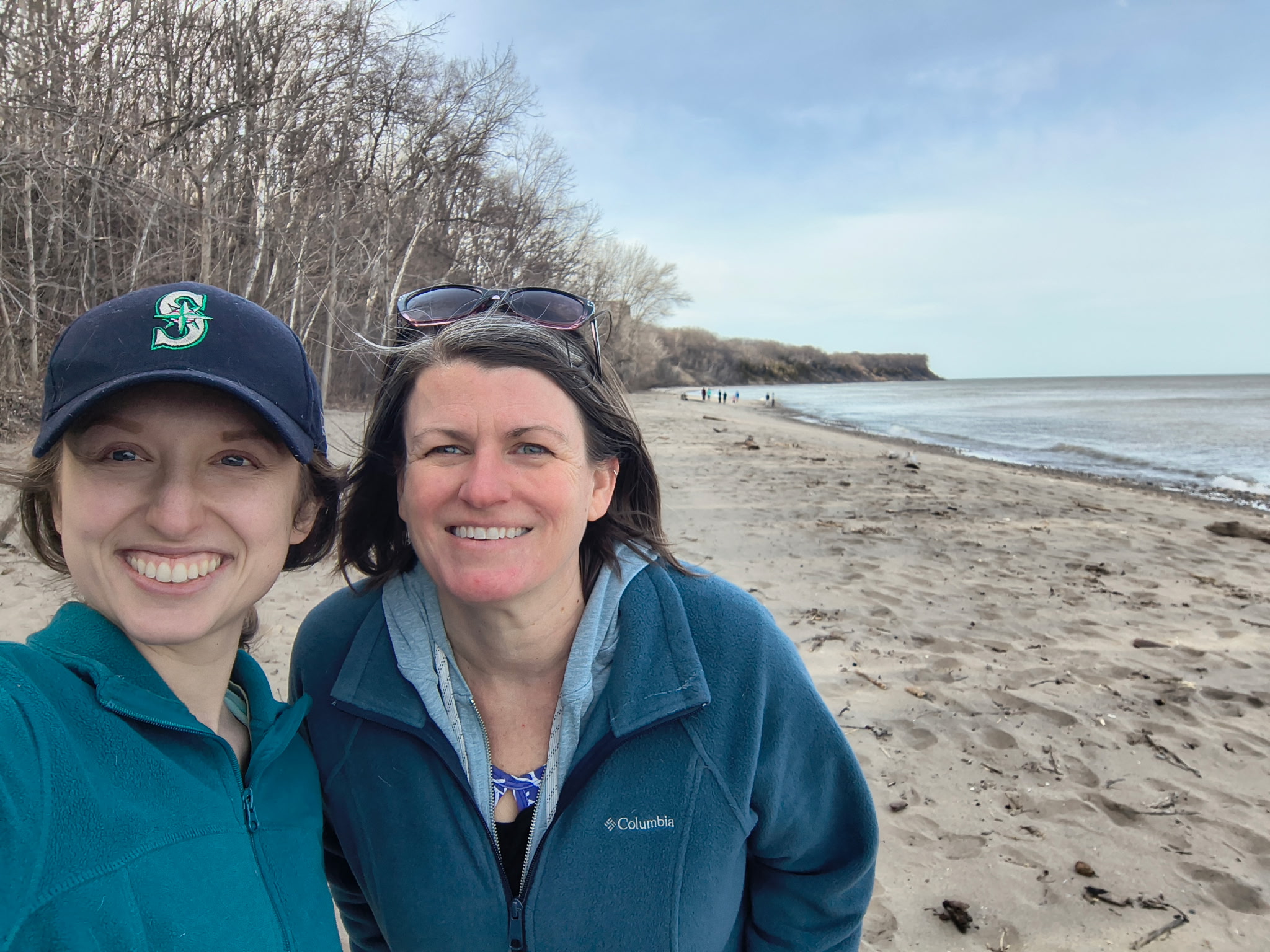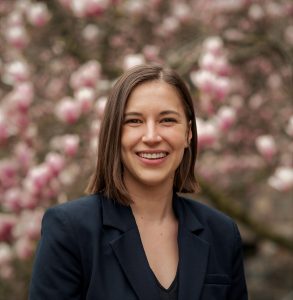Sea Grant welcomes new coastal resilience specialist

Sea Grant colleagues Carrie Malone (left) and Deidre Peroff (right) enjoy a walk along Lake Michigan. Photo: Carrie Malone
Carrie Malone likes working on projects with people. It’s a fitting skillset for her new role as Wisconsin Sea Grant’s coastal resilience and adaptation outreach specialist.
“I want to come up with ideas and problem solve,” Malone said. “I want projects that I get to see through and that make a difference to people.”
Located in Sea Grant’s field office at the University of Wisconsin-Milwaukee School of Freshwater Sciences, Malone will partner with local communities to build resilience to changing lake levels, flooding and other coastal issues that come with living along a Great Lake. The position is new, so her first order of business is getting her bearings and identifying projects to work on. “I’m really excited to have the freedom to navigate my own route,” she said.
The needs and interests of the community will help Malone chart that course. With a master’s degree in sustainable urban planning and design, she often thinks about the ways governments can work with residents to achieve common goals.
“There’s only so much that the average person can do,” she said. “So, we have a job as municipalities or institutions or state or federal governments to say, okay, we have the capacity that you don’t, so we’re going to make your lives easier.”
Malone saw firsthand how community engagement can improve lives while working with the Office of Sustainability and Innovation at the City of Ann Arbor in Michigan. She was part of a team tasked with implementing the city’s carbon neutrality plan, which included projects like community solar panels and home weatherization. These were priorities identified by residents, but city used its resources to bring them to life. The team also strived to make it easier for residents to give feedback on projects by providing meals at public meetings and activities for children.
“[The office] just really gets things done and in a very community-engaged way,” said Malone.
Building relationships with community partners also has another perk: helping Malone get to know Milwaukee. Originally from Washington and accustomed to the mountains and ocean views of the Pacific Northwest, she’s excited to gaze over the open water of Lake Michigan and try new things.
“I’m ready to be surprised. I’m ready to throw a bunch of spaghetti at the wall, and some things will stick, and some things won’t, and that’s alright,” she smiled. “I’ll keep throwing things.”
The post Sea Grant welcomes new coastal resilience specialist first appeared on Wisconsin Sea Grant.News Releases | Wisconsin Sea Grant
News Releases | Wisconsin Sea Grant
https://www.seagrant.wisc.edu/news/sea-grant-welcomes-new-coastal-resilience-specialist/

